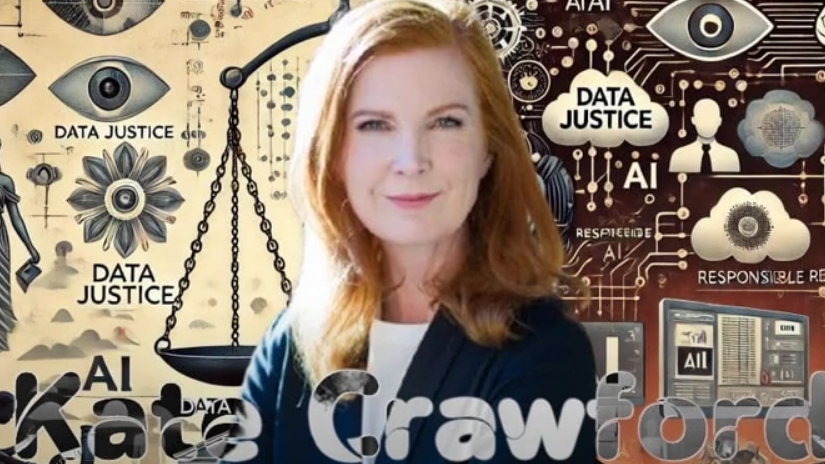Understanding the Impact of AI: The Work of Kate Crawford

Kate Crawford and the social implications of AI
In an era where artificial intelligence (AI) is rapidly transforming industries and daily life, understanding its social implications has never been more crucial. One of the foremost voices in this conversation is Kate Crawford, a prominent researcher and author whose work centers on the intersection of technology, society, and ethics. Through her research, Crawford advocates for fairness and accountability in AI systems, urging stakeholders to consider the broader consequences of technological advancements.
Who is Kate Crawford?
Kate Crawford is a Senior Principal Researcher at Microsoft Research and a co-founder of the AI Now Institute at New York University. With a background in both the arts and sciences, Crawford brings a unique perspective to the study of AI. Her work delves into the ethical, political, and social dimensions of artificial intelligence, exploring how these technologies can perpetuate inequality and bias if left unchecked.
Professor Kate Crawford – Cybernetic Imagination Resident 2022
The Social Implications of AI
Crawford’s research emphasizes that AI is not just a technical endeavor; it is deeply embedded in social contexts and power dynamics. She argues that the development and deployment of AI systems can have profound effects on individuals and communities, particularly marginalized groups. By examining the data that fuels AI algorithms, Crawford highlights how historical biases can be perpetuated, leading to unfair outcomes in areas such as hiring, law enforcement, and healthcare.
Promoting Fairness and Accountability
One of Crawford’s key messages is the importance of accountability in AI development. She advocates for transparency in how AI systems are designed and implemented, calling for stakeholders to take responsibility for the social consequences of their technologies. This includes a commitment to ethical practices, rigorous testing for bias, and inclusive design processes that consider diverse perspectives.
Crawford also emphasizes the need for interdisciplinary collaboration in AI research. By bringing together experts from various fields—such as sociology, law, and ethics—she believes we can create a more holistic understanding of AI’s impact and develop solutions that promote equity and justice.
Notable Works and Contributions
Crawford is the author of the influential book “Atlas of AI: Power, Politics, and the Planetary Costs of Artificial Intelligence,” which explores the environmental and social costs of AI technologies. In this work, she challenges readers to rethink the narratives surrounding AI and consider the broader implications of its deployment.
In addition to her writing, Crawford is a sought-after speaker, sharing her insights at conferences, universities, and public forums. Her work has been featured in prominent publications, and she has contributed to various initiatives aimed at promoting ethical AI practices.
Conclusion
Kate Crawford’s contributions to the field of AI research are invaluable in shaping our understanding of the technology’s social implications. As AI continues to evolve, her advocacy for fairness, accountability, and interdisciplinary collaboration is essential in ensuring that these powerful tools serve humanity positively and equitably.
Your most welcome to share this blogpost:
Step into the world of AiTellit, where AI sparks innovation and community thrives! Join us for free and unlock a universe of AI-driven opportunities. Engage in vibrant discussions, discover ethical tech solutions, and connect with like-minded individuals. Don’t miss out—be part of our mission to shape a more innovative world.
Your journey begins at AiTellit.
Click the link to visit our YouTube channel:
AiTellit – YouTube
#KateCrawford
#AIethics
#FairnessInAI
#AccountabilityInTech
#SocialImplicationsOfAI
#AIForGood







Responses